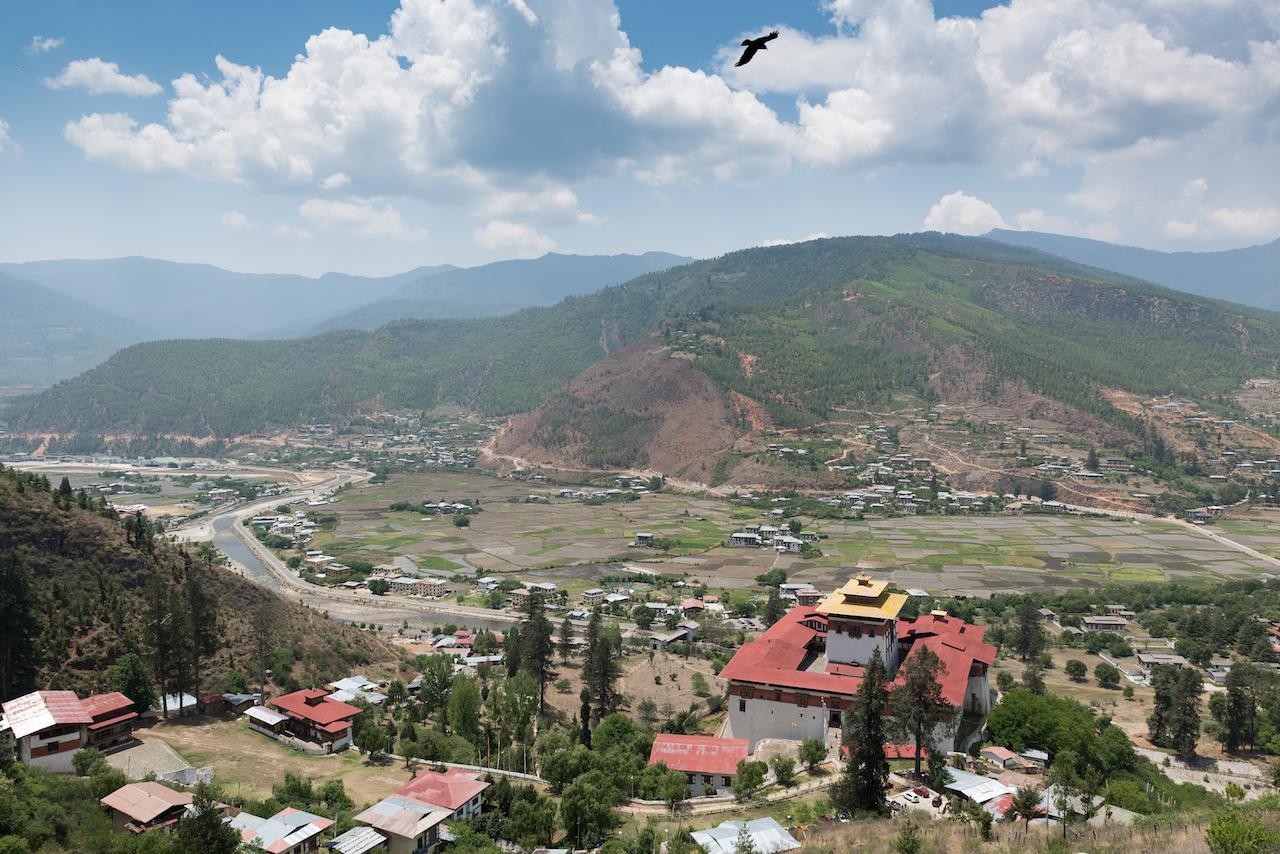Shout Out to Bhutan for Being Carbon Negative
For Earth Day 2018, environmentalists around the world are zeroing in on the movement to end plastic pollution.
This durable invention barely biodegrades, leaving not only a footprint of carbon emissions as we make it by the bulk for single-use items like straws, and then burn heaps of it to reduce the amount of waste in landfills. But also, plastic is leaving a handprint on our food supply and ocean life ecosystem.
You know, the kind of bruising, stinging handprint of domestic violence.
“By the year 2050 there will be as much plastic as there is fish in the ocean, by weight,” says Fijian diplomat Peter Thomson, recent President of the General Assembly of the United Nations.
The ripple effects are immeasurable, however the future needn’t be bleak. There is one country, out of the 200+ in the world, that is a role model of eco-friendliness.
Bhutan, a small nation of some 798,000 people, is making the grandest change when it comes to our global climate. This South Asian paradise is nestled in the East Himalayas between two of the world’s most populous countries, India and China, and it absorbs three times as much CO2 as it produces.
It is the one nation that is carbon negative, and it’s electricity is almost 100 percent hydropower.
To achieve this, 72 percent of Bhutan is covered in forests. In 2015, nearly 50,000 trees were planted in one hour, a Guinness World Record. Their vision is to power the entire country with clean energy and use the excess to power their neighbors. Seventy percent of its hydroelectricity is already sold to India.
Bhutan also subsidizes electric vehicles -- which are no longer taxed here -- and LED lights and electricity for rural farmers, so firewood isn’t needed for cooking. Eighty percent of the farms are organic, and by 2020, their hope is to be 100 percent organic.
Squad goals for real.
“The reality is that we are a small underdeveloped country doing our best to survive,” says Prime Minister Tshering Tobgay. “...We’re doing ok. In fact, we’re thriving.”
Although its total Gross Domestic Product is little more than $2 billion, Bhutan is second in per capita income in the region and health care and education is completely free, spurring a life expectancy of approximately 62 years old and a literacy rate of approximately 59 percent.
Bhutan leads in the global measurements of Peace, Ease of Doing Business, and Economic Freedom.
“Our enlightened monarchs have worked tirelessly to develop a country balancing economic growth carefully with social development, environmental sustainability and cultural preservation -- all within the framework of good governance.”
This holistic approach, Tobgay says, is called Gross National Happiness, and as former Bhutanese king Jigme Singye Wangchuck once said, “it’s more important than Gross National Product.”
The framework of Gross National Happiness was pioneered by Bhutan, a country that has never been colonized and is rooted in Buddhism. It was written into the constitution that at least 60 percent of the land stays covered in forests. Smoking is illegal, and until recently, television was also banned.
However, Bhutan is not an isolated utopia. It is, like the rest of us, feeling the effects of climate change -- having to “contend with” flooding from the some 2,700 glacial lakes in its surroundings.
“My country and my people have done nothing to contribute to global warming but we are already bearing the brunt of its consequences,” Tobgay says. The urgent call is one that not only applies to clean energy, but also to waste reduction.
Watch his TED Talk below -- it’s the voice of the generations to come.



